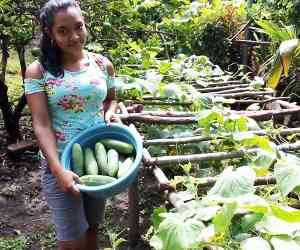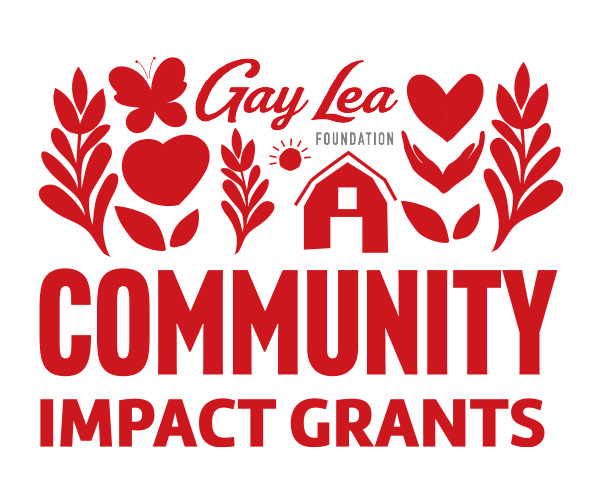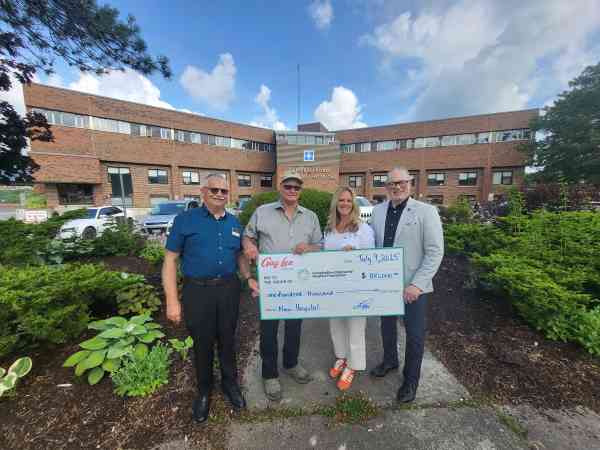Mar 31, 2021
Last spring, the Gay Lea Foundation supported the S.H.A.R.E. Agriculture Foundation’s efforts to lift rural youth in El Salvador out of poverty and violence through farmer field and leadership training.
The S.H.A.R.E. Agriculture Foundation works with local partners in impoverished, agriculturally based communities in Central and South America to provide funding, guidance and expertise for small projects that contribute to development and sustainability by increasing the capacity of community members to improve their lives through their own efforts.
One of S.H.A.R.E.’s partners is the National Association of Farm Workers (ANTA) in El Salvador, a rural workers’ association that advocates for peasant farmers, fishers, and the rural working poor. Together, they created the Promoting the Participation of Salvadorian Rural Youth in Agricultural and Socioeconomic Development Project. The project offers training and ongoing support for the rural youth of ANTA’s 25,000 farm and fishery members and 85 co-operatives.
Rural youth in El Salvador face many obstacles: poverty, lack of employment and training opportunities, and gang, gender and domestic violence. By training participants in agriculture and small enterprise skills, leadership, anti-violence awareness and gender equality, the foundation hopes to give the youth a purpose for staying in their communities while making a valuable contribution to their families and the community as a whole.

A participant collects vegetables from one of the 15 agricultual plots created for the project.
In 2020, ANTA established a demonstration plot of land for the project’s participants to learn the concepts of agroecology: small food production, making and applying organic fertilizers, seedbed preparation, planting and care of fruit trees and vegetables for continuous production and sowing corn and beans. The young participants planted and developed 15 small agricultural plots and are producing crops for sale at local markets.
The Gay Lea Foundation grant of $10,323 was used to purchase seeds, tools, teaching supplies and other program requirements, hire a specialized local agriculture technician and support program administration.
“This grant was very important to our southern partner to facilitate their work to support youth in their organization,” says Marg Frayne, the S.H.A.R.E. Foundation’s Grants Officer. “This project would not have been possible without the Gay Lea Foundation grant.”
Participants were also trained in managing all aspects of a small productive enterprise, budgeting and cost analysis, workers’ rights, equity and gender equality, organizational leadership, and youth leadership in the family, community and the ANTA organization.
“With S.H.A.R.E.’s input, it allows us to elevate the capacities of peasant men and women of all ages and improve their quality of life,” said Luis Moran, ANTA administrator.
The challenges of project implementation in 2020
Like the rest of the world, the pandemic greatly affected El Salvador. The country was placed under a strict lockdown early in the pandemic, which restricted the work of ANTA greatly. As soon as they could, the ANTA organization put safety measures in place for staff and determined how to conduct their work in the COVID environment.
Rural areas were not as restricted as the cities, so the Promoting the Participation of Salvadoran Youth project and other agricultural activities were resumed. Authorities let ANTA continue their work if they were able to inform and educate communities about COVID-19 prevention and protocols and provide supplies to the communities that visited. Trained youth in the membership played an important role in ANTA’s outreach during this time.
In addition to the pandemic, El Salvador was hit with three major storms between May and November 2020, resulting in lost homes and crops due to flooding. This placed further stress on rural communities across the country.
ANTA has determined that advances made in the last 10 years in terms of food security, living conditions and poverty elimination had been reversed in 2020 due to losses in jobs, remittances and the destruction the storms caused.

Nov 3, 2025
Gay Lea Foods Co-operative Limited (“Gay Lea Foods”) today announced it has received the PRISM Certified designation from Imagine Canada, recognizing the Canadian dairy co-operative’s commitment to...

Oct 21, 2025
As co-operatives recognize Co-op Week and the United Nations’ International Year of Co-operatives, the Gay Lea Foundation is proud to announce the recipients of its fall 2025 charitable grants.

Jun 2, 2025
Spring 2025 grants announced to support health, agriculture, and community well-being projects across Canada and internationally

Feb 12, 2025
The Gay Lea Foundation today announced applications are now open for its Community Impact Grants program, supporting initiatives in education, health, wellness, poverty relief and sustainable agriculture...